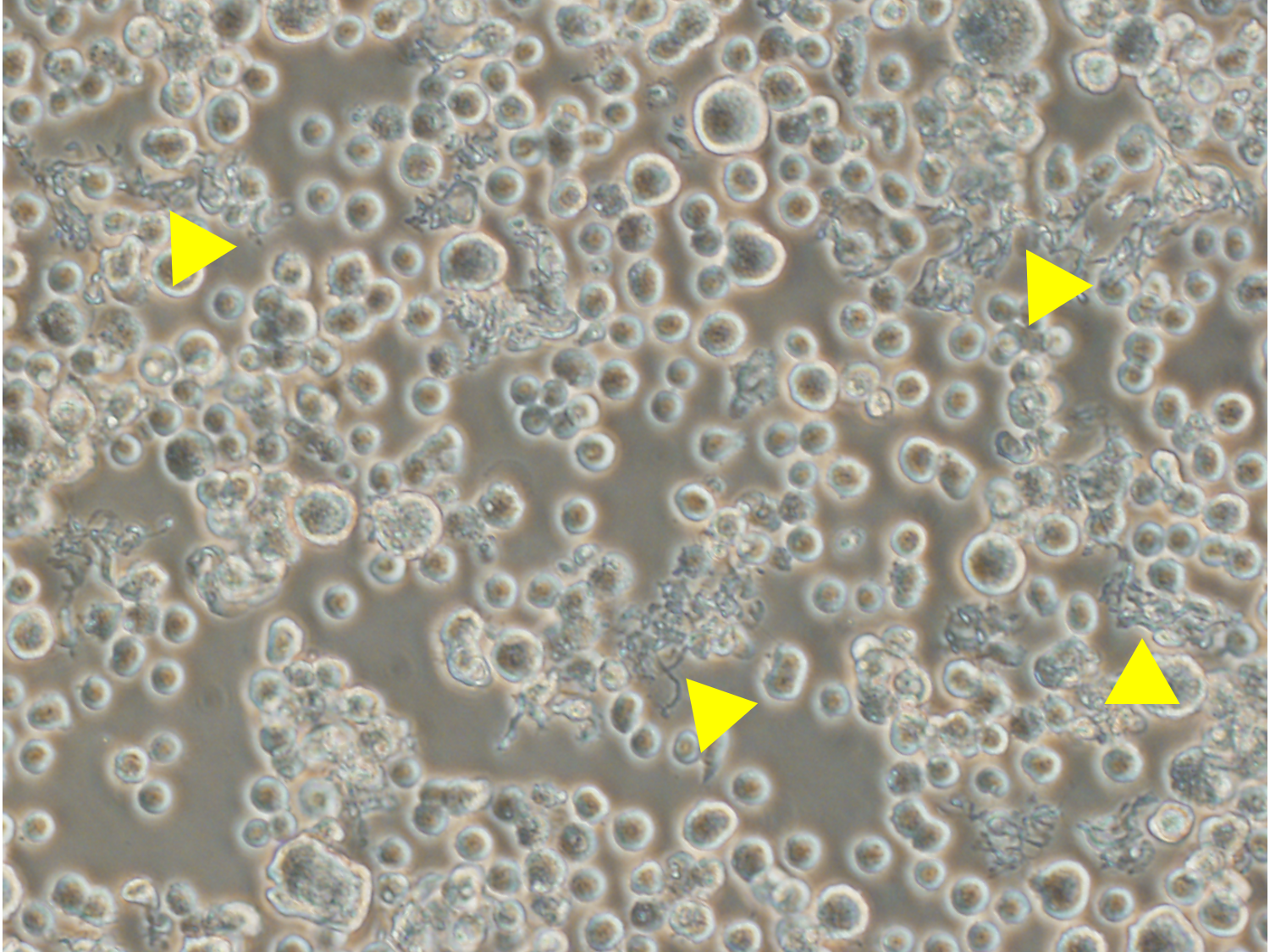
Proplatelet formation (shown by yellow arrows) in the coculture system with cord tissue-derived MSCs
Previously it was unknown how formed platelets in the circulation maintain a low basal activation state. LFKRI researchers have now identified a subset of cells in the bone marrow called stromal cells which line specific types of blood vessels referred to as bone marrow sinusoids as important contributors for maintaining platelets in a quiet, non-activated state. These investigators found that a population of cells surrounding blood vessels derived from human umbilical cord tissue have similar function in supporting platelet formation. These cells displayed numerous properties of mesenchymal stem cells (MSCs) which are known to make and repair our skeletal tissues in the bone marrow. By developing a unique co-culture system using the cord tissue derived MSC-like cells, they were able to generate platelets which were functional and in quiet, non-activated state, a critical consideration for developing a transfusion product.
These findings could potentially lead to new therapeutics to target platelet-mediated inflammation or disorders of platelet activation, and improved methods for ex vivo platelet production. The study was published in the 22nd August edition ofJCI Insight and is entitled “Mesenchymal stromal cells lower platelet activation and assist in platelet formation in vitro.”
Dr. Avital Mendelson, Assistant Member and Head of the Stem Cells & Engineering Program at NYBC led the study. All of the co-authors are current or previous members of LFKRI.
References
Mendelson A, Strat AN, Bao W, Rosston P, Fallon G, Ohrn S, Zhong H, Lobo C, An X, Yazdanbakhsh K. Mesenchymal stromal cells lower platelet activation and assist in platelet formation in vitro. JCI Insight. 2019 Aug 22;4(16) https://www.ncbi.nlm.nih.gov/pubmed/31434805